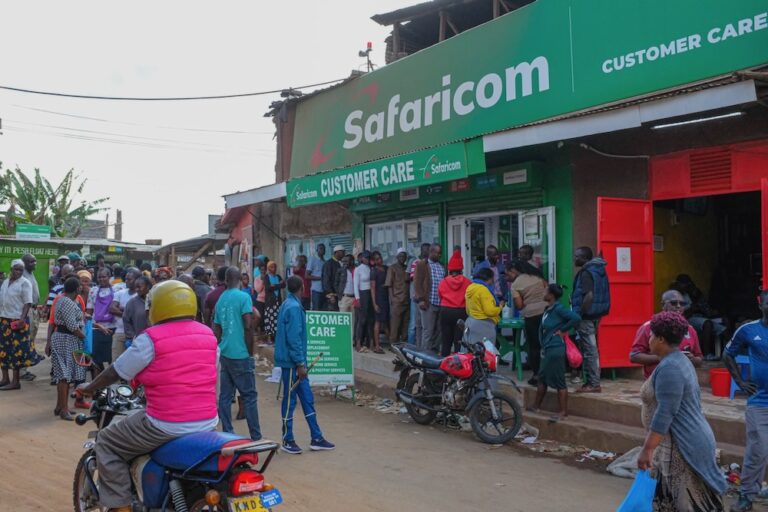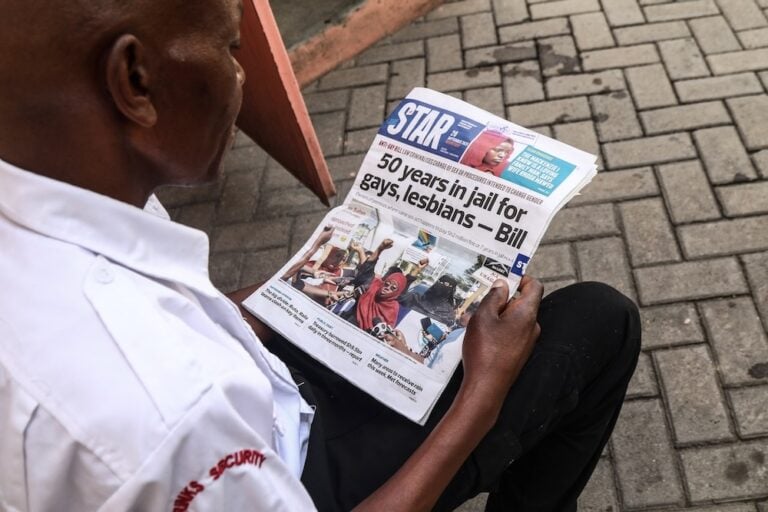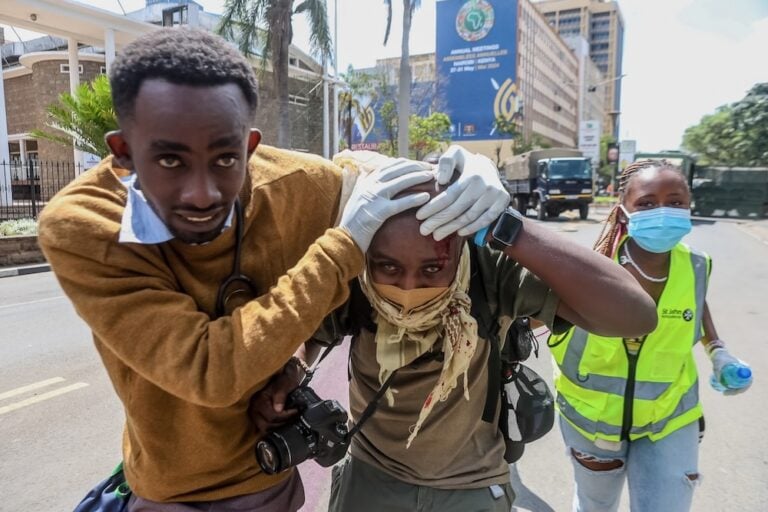Cathal Sheerin of the Writers in Prison Committee of PEN International interviewed the journalist about reporting on an alleged massacre carried out by local police officers and the repercussions of his work.
(WiPC/IFEX) – 1 February 2012 – Robert Wanyonyi is a Kenyan journalist who reports for The Standard newspaper and the Kenya Television Network (KTN). In 2011 he was a recipient of the Human Rights Watch/Hellman Hammett award, and is a journalist to whom PEN International has provided assistance.
On 5 December 2011, Wanyonyi was called to report from the scene of an alleged robbery at the Naman’ofulo coffee factory in Sirisia, western Kenya. Kenya’s black market trade in coffee is a lucrative business and the theft had left two dead. When the police arrived at the scene, events quickly spun out of control, and Wanyonyi was witness to an alleged massacre carried out by local police officers. His reports on the incident appeared in print and on TV. As a result of his reporting, he began receiving death threats. He was forced to go into hiding with his family.
What follows is Wanyonyi’s account of the experience, as told to Cathal Sheerin of the Writers in Prison Committee of PEN International:
“I was in my office in Kakamega, in the western part of Kenya. An informer rang to report that there had been theft of dry coffee from the Namang’ofulo Coffee Factory, about 120 kilometers away. He said that he feared that there might have been deaths.
I immediately left my office and drove to the scene. When I arrived, a large group of people [in the hundreds] had gathered around the factory. On the ground lay five bodies. One person had been badly injured by the locals and was in a critical state, but he could still talk.
Thieves had struck at night and had killed three night guards in an attempt to steal 100 bags of coffee. Villagers who had responded to the guards’ calls of distress managed to kill two of the thugs and recover forty bags of coffee.
[When] the District Commissioner (DC) arrived, the injured thug started accusing him of hiring him in to do [the DC’s] dirty business. I asked the thug to identify himself and his dead friends on camera; this made the DC and his fellow provincial administrators very uncomfortable. The thug admitted that he and his two dead friends were Administration police officers and that they had been sent by the DC to steal the coffee from the factory. On hearing this admission, the DC removed his pistol and shot the still-alive thug in the head, killing him on the spot. This incensed the villagers who became rowdy and started throwing stones at the DC chanting: ‘Thief! Thief!’
By this time, police officers in their hundreds had swarmed the area. I was ordered to stop video-recording and to leave the scene immediately; I defied the order and carried on with my work.
The situation had become so chaotic. More and more villagers were pouring into the factory to try to stop the police from collecting the dead bodies: incidents of coffee theft had become rampant in the area and the residents wanted to vent their anger. Skirmishes were occurring and I overheard the DC order his officers to open fire. Police bullets mowed down another five villagers as I recorded from the protection of the bushes.
One of the dead villagers was shot just three metres from where I was hiding and I managed to record it on camera. I also collected over forty spent cartridges, including those that had been used in killing the victim beside me. It was such a horrible scene – like one straight from hell.
I dashed towards where I had parked my vehicle. A group of policemen who were clashing with the villagers saw me and shouted: ‘That’s the reporter! Get him!’ I heard more than three shots whizz past me as I ducked towards the vehicle. I opened the door but one police officer was still pursuing me and he managed to hurl a smoke grenade into the vehicle. I hastily opened all windows, and, still choking from the fumes, I drove away from the scene at top speed, almost hitting people who were scattered all over the road.
I tried to avoid using main roads. A friendly police officer had rung me to say that the DC had ordered traffic policemen to barricade all major roads, arrest me and confiscate all the equipment and evidence that I had. After driving for about twenty kilometres, I saw a group of residents on the road and explained my predicament. They were very supportive and one of them offered to guide me to safety through poorly-maintained alternative routes.
After about five hours I managed to arrive back in town safely. As I was editing the story, I received the first anonymous call.
(During the call Wanyoni was invited to meet with the District Commissioner. He was told that if he brought the video tape and the cartridges that he’d collected at the scene of the killing, he’d receive an award of Ksh. 500,000, approximately US$ 6,000.)
I told the caller to inform the DC that Ksh. 500,000 could not, and never would, buy off the lives of 11 people. I told him to wait to watch the news on television, and to read it in the papers the following day. He replied: ‘And you will die!’
I went ahead and finished the story which was aired the same day on KTN Television in the news bulletins. The following day, I published the story, plus pictures of the killings in The Standard newspaper.”
(…)


